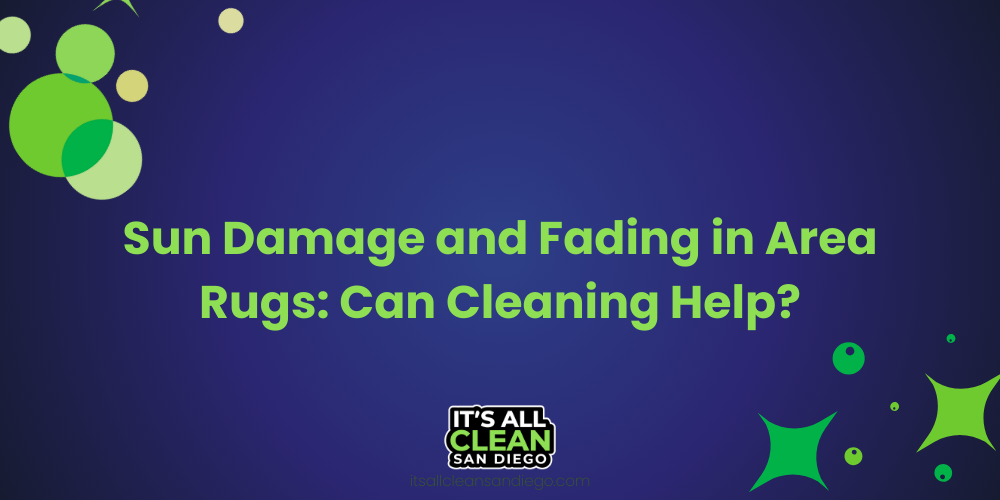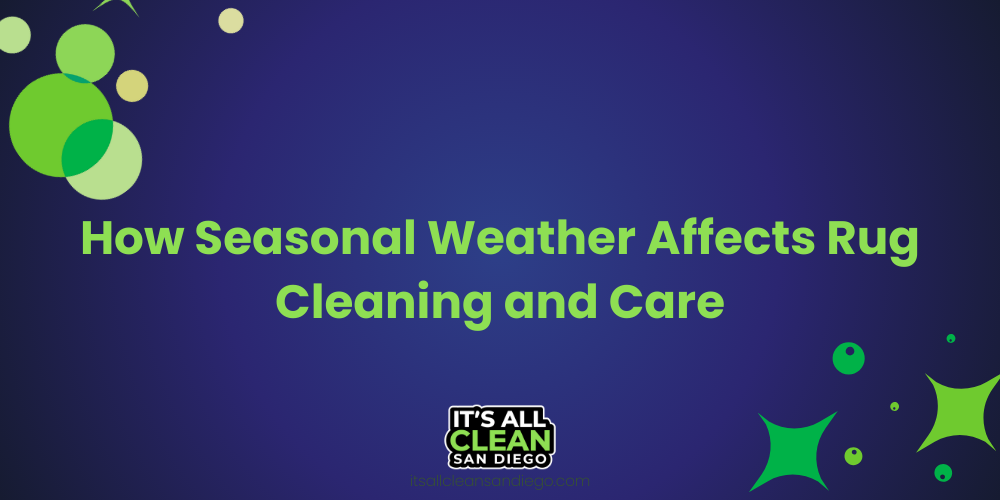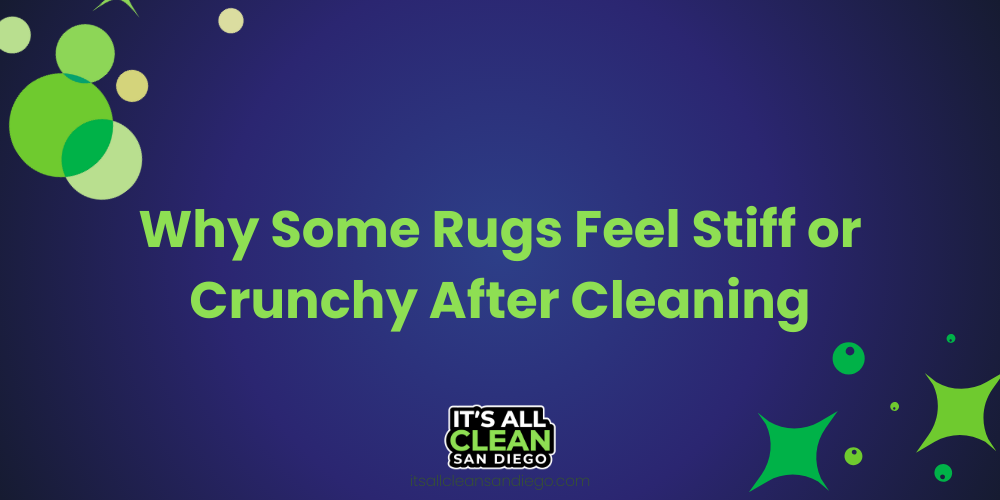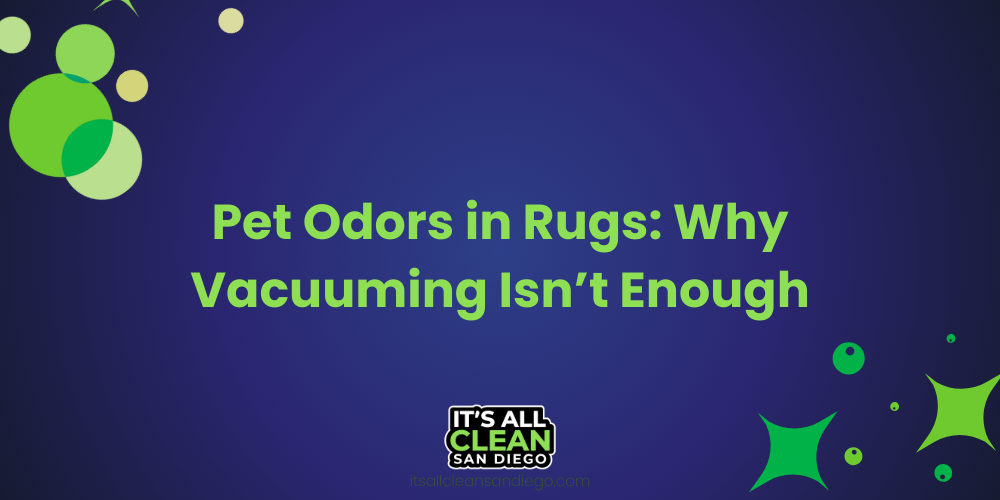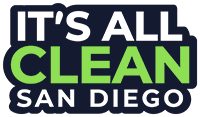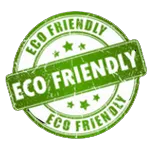San Diego, CA
Luxury Vinyl Plank (LVP) flooring has become one of the most popular choices for homeowners and commercial spaces. Its durability, realistic look, and water resistance make it a versatile option for kitchens, bathrooms, living areas, and even offices. Many LVP products come with warranties designed to protect your investment from wear, staining, or manufacturing defects.
But there’s a catch: using the wrong cleaning products can accidentally void your warranty. Many property owners are unaware that the chemicals, tools, or methods they use could actually disqualify warranty coverage. Understanding which cleaning practices are safe and which are risky is crucial for protecting your flooring and your investment.
In this article, we’ll explore how LVP warranties work, what cleaning products could put your coverage at risk, and how professional cleaning can keep your floors safe and beautiful.
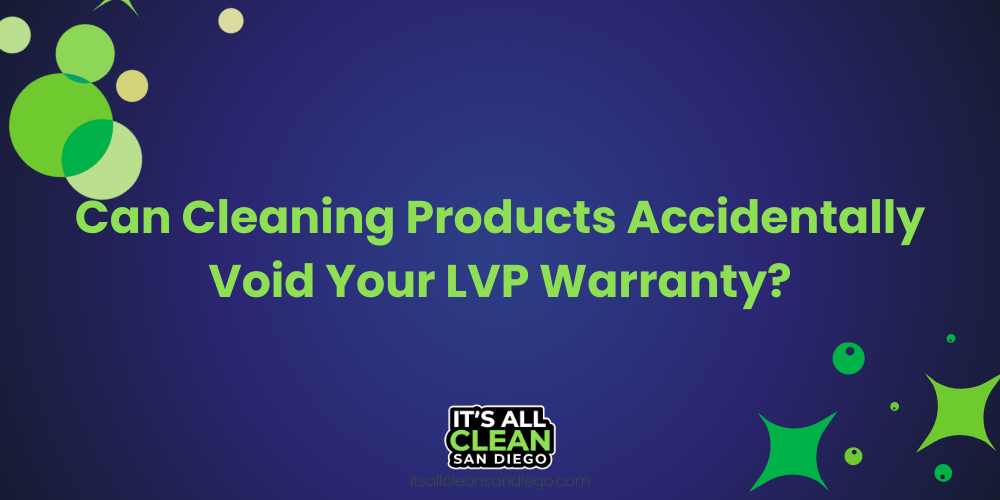
Understanding Your LVP Warranty
Most LVP manufacturers provide warranties that cover:
- Wear and Tear – Protection against scratches, scuffs, or fading under normal conditions.
- Water Damage – Coverage for limited exposure to moisture, depending on installation type.
- Stains and Finish Degradation – Protection against discoloration or deterioration of the surface finish.
Important: Warranty terms often include a clause that the flooring must be maintained according to the manufacturer’s recommended cleaning guidelines. Failure to follow these instructions — even unintentionally — can void your warranty.
Cleaning Products That Could Void Your LVP Warranty
While LVP is designed to be durable, it’s not impervious to harsh chemicals or improper cleaning methods. Here are common culprits that may put your warranty at risk:
1. Abrasive Cleaners and Scrubbing Pads
Scouring powders, steel wool, or stiff brushes may scratch the wear layer of your LVP. These scratches may not only damage appearance but also compromise the warranty’s coverage of surface defects.
2. Ammonia-Based Products
Ammonia or high-alkaline cleaners can degrade the protective finish over time, leading to discoloration, dullness, or surface damage.
3. Bleach or Harsh Chemicals
Strong chemicals like bleach, oven cleaners, or acidic solutions can erode the surface layer, causing irreversible damage.
4. Wax and Oil-Based Polishes
Some homeowners attempt to polish or shine their LVP floors using wax or oil-based products. These coatings may interfere with the manufacturer’s finish and are often explicitly prohibited in warranty documents.
5. Steam Cleaners
While effective on many surfaces, high-temperature steam can cause LVP to warp or delaminate, potentially voiding water-damage or surface warranties.
Common Mistakes Homeowners Make
- Using “All-Purpose” Cleaners: Many general household cleaners contain ingredients that are safe for tile or hardwood but harmful to LVP.
- Excess Water Use: Standing water or mopping with excessive liquid can seep into seams and edges, leading to swelling or warping.
- DIY Polishing or Buffing: Using the wrong pad or machine can scratch or dull the protective wear layer.
- Ignoring Manufacturer Guidelines: Most warranty disputes occur because homeowners did not follow the specific care instructions outlined in the manual.
How to Safely Clean LVP Flooring
Following proper cleaning practices protects both your floors and your warranty. Here’s how:
1. Use Manufacturer-Approved Cleaners
Always check your flooring manual for recommended cleaning products. Many LVP brands provide a list of approved cleaners that are safe for daily maintenance.
2. Stick to Gentle Tools
Microfiber mops, soft cloths, and non-abrasive brushes are ideal for removing dirt and grime without scratching the surface.
3. Control Moisture
Use damp mopping rather than soaking the floor. Avoid standing water and immediately wipe up spills.
4. Regular Maintenance
Dust, dirt, and grit can act like sandpaper if left unchecked. Regular sweeping or vacuuming with a soft-bristle attachment keeps your floor protected.
5. Avoid DIY Coatings or Waxing
Do not apply wax, polish, or sealant unless explicitly approved by the manufacturer. Unapproved coatings can interfere with the warranty.
Benefits of Professional LVP Cleaning
Hiring professional cleaners ensures your LVP floors remain in pristine condition while complying with warranty requirements. Professionals bring:
- Expertise: Knowledge of manufacturer guidelines and safe cleaning methods.
- Specialized Equipment: Commercial-grade vacuums, microfiber mops, and low-moisture cleaning systems designed for LVP.
- Preventive Care: Regular professional maintenance can extend the life of your flooring and reduce wear and tear.
- Peace of Mind: Ensures that you’re not inadvertently voiding your warranty through unsafe cleaning practices.
Final Thoughts: Protect Your Investment
LVP flooring is a smart investment, but maintaining its beauty and durability requires careful attention to cleaning practices. Using the wrong products or methods can not only damage your floor but also void your warranty, leaving you financially responsible for repairs or replacement.
Following manufacturer guidelines, avoiding harsh chemicals, and scheduling professional cleaning when needed keeps your floors safe, beautiful, and fully protected under warranty.
Call to Action
Don’t risk voiding your LVP warranty with the wrong cleaning products or methods.
Contact It’s All Clean San Diego today for professional LVP floor cleaning. Our team uses safe, manufacturer-approved products and techniques to keep your floors looking flawless while protecting your investment. Schedule your professional cleaning now and enjoy peace of mind with every step!
- All rights reserved -
It's All Clean San Diego © 2021
Pick a service, and we’ll be there.
Your go-to clean, green, full-service team.
Got a mess? We’ve got you covered. At It’s All Clean San Diego, we have professional commercial cleaning and residential house cleaning services for every need.
Our family-owned, full-service professional floor cleaning company has served residential and commercial customers in San Diego for nearly 20 years.


